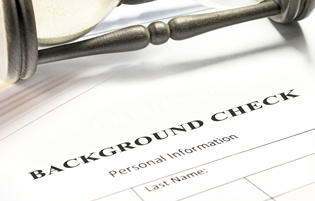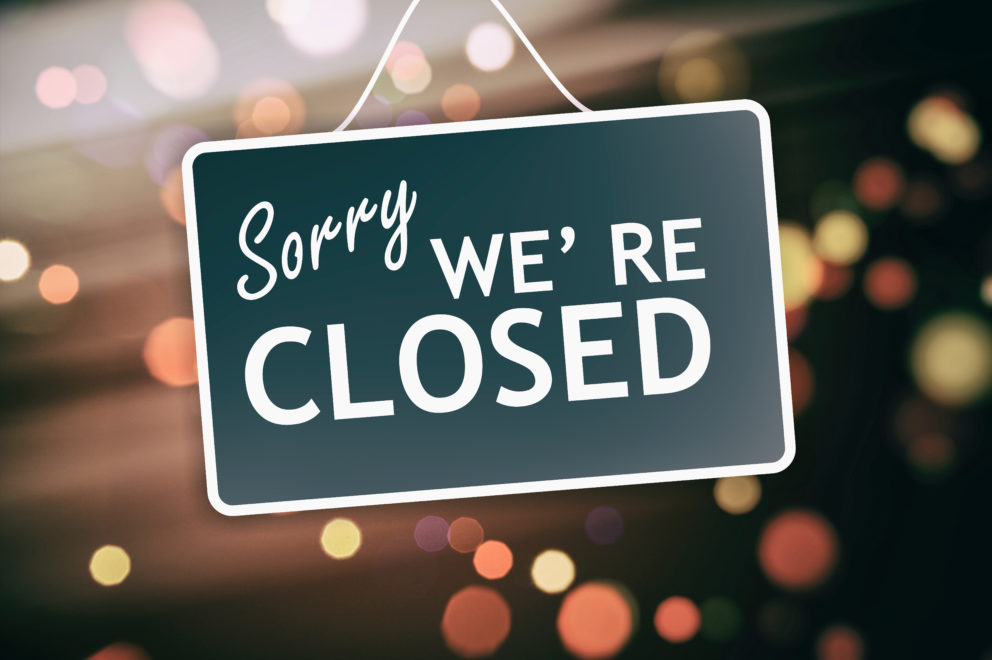Explore our background check services, including solutions for special industries.
“How long does the background check take to complete?” This is no doubt one of the top 3 questions we hear from HR professionals; and for good reason. The background check report is usually one of the last pieces of what can be a long, and possibly even painful, hiring process. Not to mention the incessant pressure from the hiring manager. So needless to say, patience is in short supply.
We get it. Time to hire is one of the biggest HR challenges. It costs time and money. It’s frustrating. Especially when we live and work in a world where immediate information and results are not only preferred, they are expected. Employee background checks are no exception.
However, sacrificing accuracy and thoroughness for the sake of speed is…well…risky. If your background check report turnaround times are lightning fast, but the quality of the results are, shall we say, lacking, how solid are your hiring decisions going to be? Besides, it’s unfair to the applicant.
So how long should a good background check report take? A background check that has solid procedures, doesn’t cut corners or take shortcuts, and isn’t the outcome of lazy, crappy work.
Overall, turnaround times are generally 24 to 72 hours, but may be contingent on the nature and scope of the background check. Some background checks may be completed sooner, but occasionally, due to known or unforeseen circumstances, issues arise that cause delays in the background screening process.
Here are some examples of common services, typical turnaround times and issues that can cause delays in your background check report – along with some helpful tips, too!
Criminal Record Searches
There are multiple types of criminal record searches that can be ordered for an employment background check. Each come with their own set of challenges related to turnaround time.
County Criminal Record Searches, conducted in district, superior, supreme, justice or municipal courts (depending on the jurisdiction), are where the majority of criminal records are kept. Felonies, misdemeanors and criminal traffic offenses are levels of offenses found in a county criminal record search.
Most county criminal record searches are completed in 24 to 48 hours.
There are several reasons a county criminal record search could be delayed. If the initial search of the index indicated a hit or potentially relevant match, the hard-copy case file may have to be pulled in order to confirm the personal identifying information (PII), such as full name, SSN, DOB, DL#, etc. are a match to the applicant and/or to obtain case details so the most accurate, up-to-date information is reported. Sometimes the hard-copy file is in an off-site storage facility and must be retrieved. Other times, a request must be submitted to the clerk and they will pull it or provide copies in their own time.
On the topic of court clerks, there are numerous jurisdictions throughout the country that require a “clerk-conducted” search. This means that a search request submitted to the clerk goes in a queue and is performed in the order they are received. High request volumes, staffing shortages or simply work priority are common reasons these types of criminal record searches are delayed, sometimes for weeks.
A USA Criminal Database Search (often called a national/multi-state/multi-jurisdictional search) should be ordered only as a supplemental search to a county criminal record search to expand the geographical coverage area (a topic we cover in a previous Industry Insight). This search is basically instant. If it comes back clear with no potentially relevant matches, results go into the report almost immediately.
Delays may occur however if there are possible hits. The researcher must manually review the results to determine if additional information is necessary to confirm a match to the applicant as well as retrieve the most up-to-date case information. If more research is required, records will be obtained from the original jurisdiction. While this doesn’t necessarily mean it will slow things down, the additional research is subject to the delay possibilities as described above.
Federal Criminal Record Searches, conducted in federal district courts, include crimes that fall outside state and local jurisdictions. Fraud, embezzlement and aggravated assault are a few examples of offense types found in a federal criminal record search.
If there are no potentially relevant matches found during the initial search of the federal system, results are returned in 24 hours or less.
Delays can occur when a possible hit is found and the researcher must then view the case file or contact court clerks or other sources and attempt to match the case to the applicant. This can prove extremely challenging given that the redaction of personal identifiers in federal case files has become an epidemic, which makes it harder and takes longer to determine whether it is a match to the applicant, if it is even at all possible.
Helpful tip: Obtaining the middle name of the applicant is beneficial in criminal record searches as middle name identifiers help confirm the identity of the applicant. If the applicant has a common first and last name, the middle name will speed up the process in identifying if the case records found actually belong to the applicant.
Employment Verifications
If you have ever tried to do any significant number of employment verifications yourself, you know all too well that previous employers do not have someone sitting by the phone anxiously waiting to take your call and provide you with the information you are looking for as quickly as they possibly can. The reality is different.
While the majority of employment verifications can be completed in less than 72 hours, there are several reasons it may take longer.
There may be difficulty identifying what we at Clarifacts call the Established Verifying Contact (EVC). This is the person or department that has the employment records available to them. This is not someone who says, “Yeah, I think she used to work here.” or “That sounds about right.” or “I’m sure whatever he told you is true.”
Once the EVC is identified, there may be problems getting them to respond. Either because they are busy with other work, they are out of the office for any number of reasons, or they simply feel verifications are a low priority. Often times, numerous daily follow-ups are required.
Even if you have an available and cooperative employer, they may have an established procedure as to how and when they complete a previous employment verification request. Some employers indicate they will return the information in a specified amount of time such as 5 to 7 business days. Others may only complete requests on a certain day of the week. And less common, but certainly possible, is that the employer may require a written request along with the applicant’s consent form actually be snail mailed to them. They will then process the request and mail it back.
Given that there are countless companies out there, employment verifications can be somewhat unpredictable.
Helpful Tip: Verify the applicant worked directly for their previous employer and not through a temp agency. Sometimes the applicant will list the organization at which they worked instead of the temp agency they went through to get the position. The temp agency houses those records, not the employer. If the incorrect organization is listed, the applicant will need to be contacted to get the information for the temp agency, which can cause delays in the back and forth.
Education Verifications
Verifying education is more predictable than an employment verification. The normal turnaround time for education verifications is within 72 hours. There are, however, several circumstances that may cause delays.
Most notably is that the school is closed for seasonal (summer, winter, spring, fall) breaks or state and federal holiday.
The year in which the student graduated can also affect turnaround time. Older records might be in storage or the educational institution has since closed and/or consolidated records.
The level of the degree or diploma is also a factor. Generally speaking, colleges and universities respond quicker than a trade school or high school. Verifying a GED can cause the greatest challenge and the longest delays since the testing facility does not house the education records. In these cases, a verification request along with a check for the processing fee must be mailed to that state’s Department of Education or other governing body. Between the time it takes to receive the request, to the time it takes for them to process it, the delay can add on multiple days to the turnaround time.
Helpful Tip: Find out the name under which the applicant graduated. This will help speed up the turnaround time as educational institutions commonly look up the student’s records by full name and date of birth, as well as the graduation year, if known. Some educational institutions will also look up the records by social security number, but will only release the information if the full name matches the social security number they have on record.
Motor Vehicle Reports
Most employment background screening companies have direct access to motor vehicle reports, which means they can usually return results within minutes. A handful of states require additional forms be submitted which will restrict/prevent immediate results.
Helpful Tip: If the applicant’s driver’s license is from a state that requires a specific signed release form, getting this form from the applicant, and to the background screening company, as soon as possible will help prevent any further delays.
Keeping You in the Loop
Regardless of the delays that can occur, a good background screening company will be diligent about following up with educational institutions, employers and courts to make sure they are completing your background check report as accurately and timely as possible.
A dependable screening company will also be proactive and responsive with keeping you up-to-date on why there is a delay. You should never have to ask, “Where’s my background screening report?” The key to a great partnership with your background screening company is great communication.
To learn more about our background check services, contact us at 800.318.0553 or info@clarifacts.com.
Please Note: Information and resources provided by Clarifacts are for educational purposes only and should not be construed as, or a substitute for, legal advice. Employers should consult legal counsel about their specific compliance responsibilities under federal, state and local laws and any other applicable legal and regulatory requirements.

Kevin Klimas
Kevin Klimas is the president and founder of Clarifacts, an employment background screening company serving conscientious clients for more than 20 years. As a founding member and former board member of the Professional Background Screening Association (PBSA), Kevin is outspoken about screening the right way. In fact, he speaks on this topic at HR conferences and in various media outlets, sharing his enthusiasm for helping others understand all things background checks. Kevin is a member of SHRM and holds a Fair Credit Report Act Advanced Certification from PBSA. He has a Bachelor of Science in criminology and criminal justice from Arizona State University (Forks Up!) and has nearly completed his quest to visit every Major League ballpark.
About Clarifacts
Clarifacts is a pre-employment background check company specializing in personalized solutions for human resources leaders. From basic screenings to more specific services for specialized industries, Clarifacts has the experience, knowledge and technology to create a better background check experience, supported by a friendly, responsive, tenured team.
Insights for HR Pros
Sign up for monthly(ish) in-depth articles and helpful tips to broaden your background screening knowledge.
Employment Background Screening and The Applicant Experience
Improving the Applicant Experience The hiring process is one of the first impressions your company will make on a job …
Are Company Closures Slowing Your Background Screening?
Strategies for verifying employment when businesses close U.S. companies have closed in record numbers due to COVID-19. Recent figures indicate …
Tune Up Your Hiring Process with Driving Record Reports
Clarifacts may have recently celebrated our 16th birthday, but that doesn’t mean we’re inexperienced behind the wheel. Since 2001, we’ve …
Get Started with Clarifacts
See why so many HR leaders make the switch to Clarifacts for their background checks. Tell us about your needs, and we’ll get to work on your custom pre-employment screening program.




